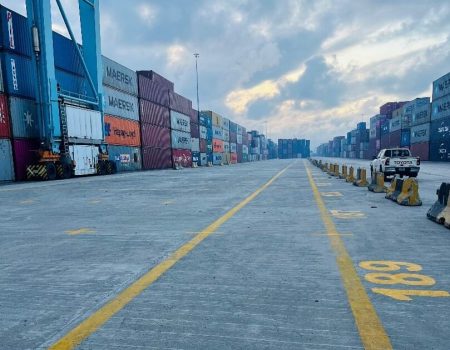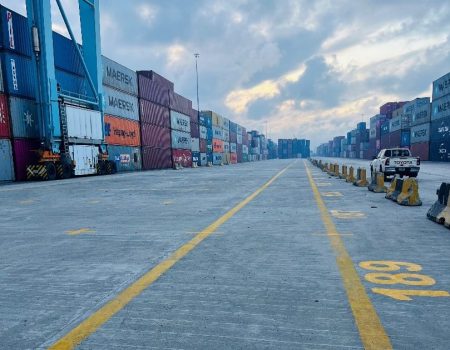The International Air Transport Association (IATA) has sounded the alarm on the escalating operational costs plaguing airlines across Africa, hindering the continent’s aviation sector growth and competitiveness. This concern was highlighted at the 81st IATA Annual General Meeting, revealing a stark disparity between the operational expenses of African airlines and their global counterparts. Fuel prices, a major cost driver, are 17% higher in Africa than the global average, representing a substantial 40% of operating costs compared to 25% globally. This disparity deepens the financial burden on African carriers, making it increasingly challenging to compete in the international market. Further exacerbating the situation are taxes, fees, and charges, which are 12-15% higher in Africa than other regions. These inflated costs, coupled with higher air navigation charges (10% higher) and elevated expenses for maintenance, insurance, and capital (6-10% more), create a challenging operational environment for African airlines, limiting their profitability and growth potential.
The high operational costs faced by African airlines paint a grim picture of an industry struggling to compete on a global scale. While the continent possesses immense growth potential with a burgeoning population and economy, its aviation sector contributes a mere 2-3% to global air traffic. This disparity underscores the urgent need for strategic interventions to address the cost burden and unlock Africa’s aviation potential. The IATA emphasized that approximately 175 million passengers are projected for 2024, demonstrating the significant untapped market within the continent. However, the current operational landscape makes it difficult for African airlines to capitalize on this growth potential. Instead, the benefits are often reaped by non-African carriers, which dominate the market, further highlighting the need for policy changes and strategic investments to bolster the competitiveness of local airlines.
Beyond the operational costs, another significant hurdle for African airlines is the limited connectivity within the continent. A staggering 80% of flights originating in Africa are international, while only 20% service intra-African routes. This imbalance hinders regional integration and economic development, as efficient and affordable air travel is crucial for facilitating trade, tourism, and cross-border collaborations. Moreover, the dominance of non-African carriers in international passenger traffic, accounting for over 75% of travelers, further underscores the urgent need to strengthen the competitiveness of local airlines. Without significant improvements in intra-African connectivity and the strengthening of local carriers, the continent’s aviation sector will continue to underperform, hindering its overall economic progress.
Adding to the financial woes of African airlines is the issue of blocked funds, a persistent challenge that further restricts their operational capacity. As of April 2025, approximately $1.28 billion of airline funds remain trapped globally, with a disproportionate 85% held in Africa and Middle Eastern countries. This represents a slight improvement from the $1.7 billion blocked in October 2024, but it remains a substantial sum that could be used for crucial operations, investments, and growth. Among the countries with the highest blocked funds are Mozambique ($205 million), the Central African Republic and its neighboring XAF zone countries ($191 million), Algeria ($178 million), Lebanon ($142 million), and Angola ($84 million). These blocked funds further constrain airlines’ financial flexibility, hindering their ability to invest in fleet modernization, route expansion, and other critical areas for growth and competitiveness.
The situation in Nigeria offers a glimmer of hope, as the country successfully cleared its backlog of blocked funds in 2024. This positive development demonstrates that with concerted effort and policy reforms, it is possible to address the issue of blocked funds and improve the financial health of airlines. However, the broader challenge of excessive taxation continues to plague the industry, particularly in Nigeria. Industry experts, such as Capt. Ado Sanusi, Managing Director of Aero Contractors, echo the IATA’s concerns, highlighting the detrimental impact of multiple and high taxation on airline operations. He argues that using airlines as a source of revenue for government coffers is unsustainable and undermines efforts to develop the aviation sector.
Addressing the multifaceted challenges facing African airlines requires a comprehensive approach involving policy reforms, strategic investments, and regional cooperation. Reducing the burden of excessive taxation, streamlining regulations, and promoting competition are crucial steps towards creating a more conducive environment for airline growth. Furthermore, investing in infrastructure development, improving air traffic management systems, and fostering regional partnerships are essential for enhancing connectivity and efficiency. Ultimately, a thriving aviation sector in Africa is crucial for unlocking the continent’s economic potential, facilitating regional integration, and connecting it more effectively with the global economy. Therefore, addressing the current challenges faced by airlines is not just an industry-specific concern, but a priority for the continent’s overall development agenda.














